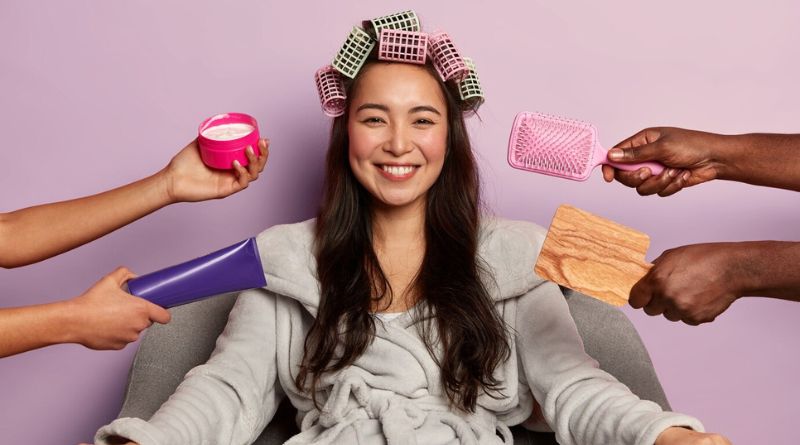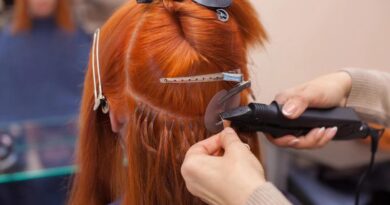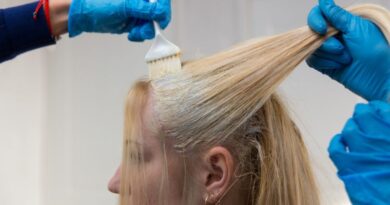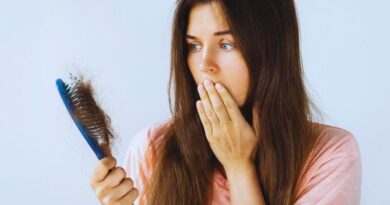Welcome to the ultimate guide for achieving the hair of your dreams! In our blog, “Hair Wash: An Ultimate Guide for Hair Care,” we’re diving deep into the art and science of hair washing. Your hair deserves the very best, and we’re here to provide you with the knowledge and tips you need to achieve that perfect balance of cleanliness, health, and beauty.
From choosing the right shampoo to mastering the techniques that suit your hair type, we’ve got you covered. Whether you have curly, straight, oily, or dry locks, we’ll help you tailor your hair-washing routine for optimum results. So, get ready to unlock the secrets of hair care and embark on a journey to the kind of hair that turns heads and boosts your confidence. Gorgeous, vibrant hair is just a wash away!
How Many Times a Week Should You Wash Your Hair
Now, as we had mentioned earlier, the frequency of hair washing depends on various factors. But for normal hair, you can wash them about 3-4 times a week or after skipping one day.
If you have long, normal hair, you can wash them 3-4 times a week, and if you have shorter hair, then you can wash them every day.
Washing normal hair at this frequency is to keep it clean and keep them moisturized and healthy.
Do not overwash them with shampoo or soap. It can result in damage over a long course of time.
How many times should you wash your hair according to your hair type?
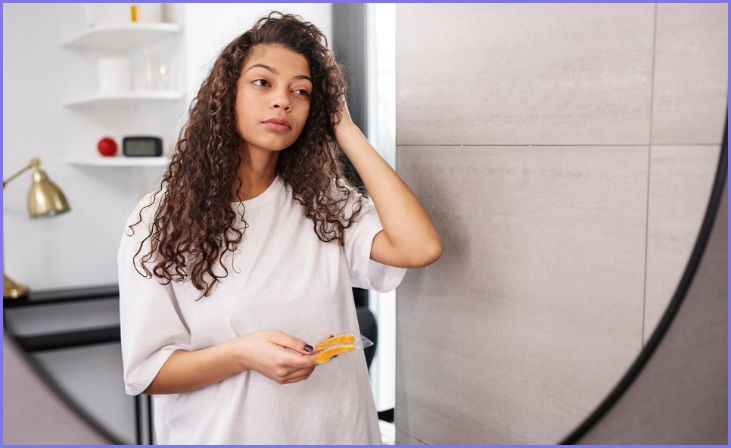
According to different hair types, the frequency of hair washing also changes. Let’s have a look-
In case of oily hair – In the case of oily hair, you should wash your hair every day to prevent excess oil buildup and also to remove dust attracted towards oily hair.
Produced oil in hair causes itching and irritation if you skip your hair wash. So, to clean your oily hair you can wash your hair daily.
In case of Dry/Damaged hair – If you have dry or damaged hair, try to wash it only in about 5-7 days. Because you should give your hair time to build oil in case of dry hair.
On the other hand, if you do wash frequently, your hair will remain dry due to the deficiency of hair oil.
In case you have thin hair – If you have fine or thin hair, wash them every day but with a nourishment/moisture hair shampoo to give them proper nourishment.
In case you have wavy/curly hair – It depends on the density of your wavy or curly hair. But on average, you should wash them in 4-5 days.
In case you have coiled hair – Wash your hair once a week in case of coiled hair to give them time for optimal growth.
Read Also: How to Get Rid of Perioral Dermatitis Overnight
Why does my hair feel waxy after washing?
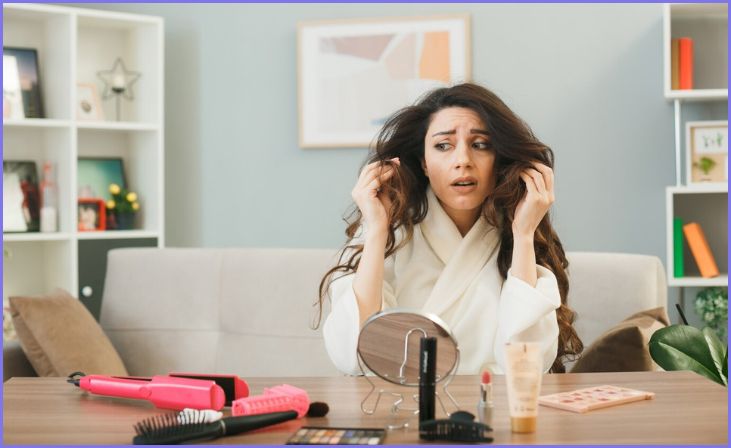
If your hair feels waxy after washing, there could be several reasons behind it:
Residue from Hair Products
Residue from hair products occurs when styling products like conditioners, serums, or hair sprays are not completely rinsed out during washing. These leftover products can build up on your hair over time, leaving a waxy or greasy feeling. To prevent this, ensure you thoroughly rinse your hair after using such products, and periodically use a clarifying shampoo to remove any accumulated residue, keeping your hair fresh and free from buildup.
Hard Water
Hard water includes minerals such as calcium and magnesium. When hard water interacts with the ingredients in your shampoo, it can create a chemical reaction that leads to the formation of a waxy residue on your hair. This residue can make your hair feel heavy and less clean. To combat the effects of hard water, consider using a clarifying shampoo or installing a water softener in your home to reduce the mineral content in your tap water, helping your hair stay soft and clean after washing.
Wrong Shampoo
Using the wrong shampoo for your hair type can result in a waxy feeling after washing. For instance, using a shampoo formulated for oily hair when you have dry hair can strip away too many natural oils, prompting your scalp to produce excess sebum, which feels waxy. To avoid this issue, choose a shampoo specifically designed for your hair type, whether it’s oily, dry, or normal, ensuring a better match and a cleaner, more balanced result after each wash.
Overwashing
Overwashing your hair can lead to a waxy feeling. When you wash your hair too frequently, you strip away its natural oils. In response, your scalp may produce excess sebum (oil) to compensate, causing your hair to feel greasy and waxy. To maintain a healthier balance, try spacing out your hair washes, allowing your scalp to regulate its oil production naturally. This can help you achieve cleaner, less waxy hair in the long run.
Product Buildup Over Time
Product buildup over time occurs when various hair products, minerals from hard water, and environmental impurities accumulate on your hair. This buildup can create a waxy or greasy sensation and diminish your hair’s natural shine and vibrancy. To combat this issue, consider using a clarifying shampoo periodically. These shampoos are designed to remove accumulated residue, leaving your hair feeling fresh, clean, and free from buildup.
Heat Damage
Heat damage occurs when you frequently use hot styling tools like straighteners or curling irons on your hair. Excessive heat can damage the hair cuticles, making them rough and prone to trapping residue. This can result in your hair feeling waxy, as it’s less able to shed buildup effectively. To prevent heat damage and the waxy feeling it can cause, use heat styling tools sparingly, and always apply a heat protectant product before styling to safeguard the health and cleanliness of your hair.
What factors influence the frequency of washing hair?
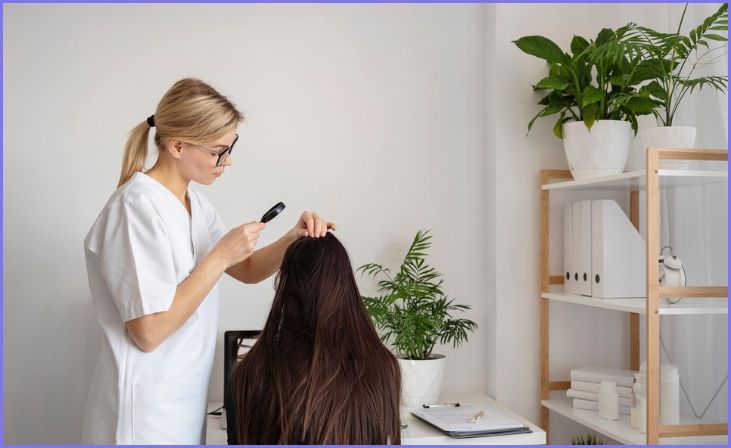
Apart from hair type, other different factors can influence the frequency of your wash in a week. These factors include oil production in your scalp, sweat, dirt, and pollution, and products you use on your hair! Let’s have a detailed view-
1) Oil Production – Oil production is the first and foremost important factor when it comes to hair washing.
Secondly, hair type decides the frequency of your hair wash.
The more oil production in your scalp, the dirtier the hair. Consequently, the more frequent your hair wash will be.
In other words, the lesser the oil production in your scalp, the less dirty your hair will be. So, you do not need to wash your hair on a regular basis.
2) Sweat – If you do work or exercise, which will cause sweat to your body, you may need to wash your hair every time after that.
Because keeping sweat in your hair can cause germs and hair problems. So either wash your hair simply with water or do it with shampoo or soap to eliminate the risk of germs.
3) Physical Dirt or Pollution – If you live in an environment full of dirt or pollution, you may have to wash your hair frequently, irrespective of your hair type.
For example, you live in an area where there are factories, so the environment of that area will be automatically polluted.
And so will be your hair. So wash your hair with soft base shampoo every day in case of physical dirt or Pollution.
4) Product used on hair – If you use styling products, you may need to clean your hair frequently.
This is because styling products build up residue in the scalp. And that residue can cause irritation and damage.
So in order to remove that product residue, it is essential to wash your hair. Also, keep your hair away from creams and sprays to avoid frequent hair washing.
5) Water Type of Area – This is another crucial factor that will affect your hair-wash schedule. If you live in an area where the water is soft and contains no hard metals, then your hair will be smooth, shiny, and clean after washing.
But if you live in an area where water is hard and contains heavy metal, then hair after wash will not be good and remain dirty to an extent.
So you may need to wash 2-3 times to clean properly.
So these are the factors that will decide how many times should you wash your hair apart from hair type.
What does excessive hairwashing do to your hair?
What if you wash your hair two times a day and more than seven times a week?
Obviously, it can cause various hair and scalp problems.
Washing hair with shampoos and products at this frequency will lead to dryness in your scalp as all the natural hair oils will get cleaned with hair wash.
Not just dryness; your hair may feel dull, split-ended, and will lose bounciness. This is why even doctors and even hair specialists advise washing hair according to hair type only.
So only a person with oily hair should wash hair every day with shampoo or other products. But not the people with other hair types.
However, it is okay to wash hair only with water more than once a day.
Expert Info: Why do Barbers Use Alcohol after a Haircut
Is it true that washing your hair less often causes it to grow faster?
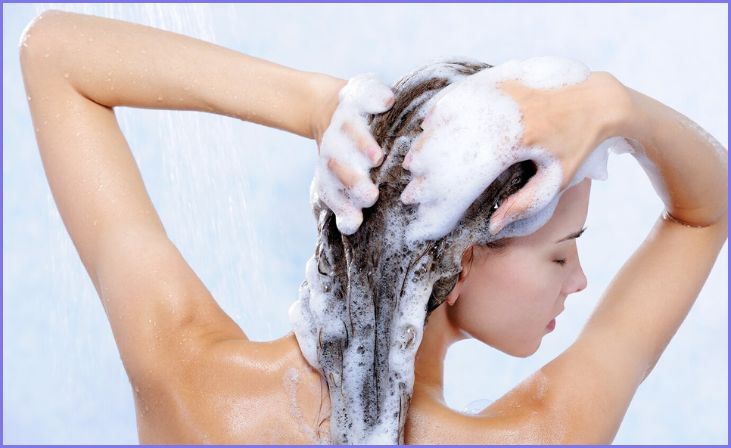
Washing your hair less does not directly make it grow faster. Hair growth primarily depends on factors like genetics, diet, and overall health. However, reducing the frequency of hair washing can indirectly support healthier hair, which may appear to grow faster. Over-washing can strip your hair of natural oils and lead to dryness and damage, potentially slowing down growth. By washing less frequently and using gentle, nourishing products, you can maintain better hair health, which can give the impression of faster growth. But remember, there’s no magic shortcut to significantly speed up the natural pace of hair growth.
Factors affect how often you wash your hair
Several factors can influence how often you should wash your hair. These include:
Hair Type: Your hair type is very important. Oily hair may require more frequent washing, while dry or curly hair benefits from less frequent washing to retain natural oils.
Lifestyle: Active individuals who sweat more may need to wash their hair more often, whereas those with a sedentary lifestyle may wash less frequently.
Environmental Factors: Pollution, humidity, and exposure to dust and dirt can necessitate more frequent hair washing.
Hair Length: Longer hair can accumulate more oil and dirt, so it may need more frequent washing.
Hair Products: The use of styling products can lead to product buildup, requiring more frequent washing to maintain clean hair.
Scalp Conditions: Scalp conditions like dandruff or dermatitis may require specialized shampoos and different washing frequencies.
Personal Preference: Ultimately, how often you wash your hair may come down to personal preference and comfort.
It’s essential to find the right balance for your specific hair type and lifestyle to keep your hair clean, healthy, and looking its best.
How to train your hair to not be washed everyday?
Training your hair to require less frequent washing can be beneficial for its health and appearance. Here’s how to do it:
Start Gradually: Starting gradually when reducing the frequency of hair washing involves extending the time between washes step by step. For example, if you wash your hair every day, begin by skipping a day between washes, then gradually increase the gap as your scalp adjusts. This approach helps prevent excessive oil production while allowing your hair to become less dependent on daily washing.
Use Dry Shampoo: Using dry shampoo is a handy way to absorb excess oil and refresh your hair between washes. It comes in a spray or powder form and is applied to the roots. Dry shampoo works by soaking up the oil and providing a clean, fresh feeling. It’s particularly useful on days when you want to extend the time between washes or when you need a quick hair pick-me-up.
Choose the Right Shampoo: Choosing the right shampoo is essential when training your hair to require less frequent washing. Opt for a mild, sulfate-free shampoo that matches your hair type, whether it’s for oily, dry, or normal hair. Harsh shampoos can strip your hair of natural oils, causing your scalp to produce more oil, while a gentle, suitable shampoo will help maintain a healthy balance and reduce the need for frequent washing.
Conditioner: When trying to wash your hair less frequently, use conditioner strategically. Conditioner should be applied mostly to the ends of your hair, avoiding the scalp. This prevents your scalp from getting overly moisturized and oily while still nourishing the hair’s ends. Using conditioner appropriately helps strike a balance between hair health and oil control, reducing the need for frequent hair washing.
Rinse Thoroughly: Rinsing your hair thoroughly after shampooing and conditioning is crucial when aiming to wash less frequently. Incomplete rinsing can leave behind product residue, which can contribute to buildup and a waxy feeling. Ensure you rinse your hair with enough water to remove all traces of shampoo and conditioner, leaving your hair clean and fresh for an extended period between washes.
Reduce Heat Styling: Reducing heat styling, such as flat irons or curlers, is beneficial when training your hair to require less frequent washing. Excessive heat can damage hair cuticles, making them prone to trapping oils and residue, leading to a waxy feel. Minimize heat styling and embrace natural hairstyles to maintain healthier hair and reduce the need for frequent cleansing.
Healthy Diet: Maintaining a healthy diet is essential for overall hair health, which can affect how often you need to wash your hair. A diet rich in vitamins, minerals, and proteins supports strong, vibrant hair. Foods like fruits, vegetables, lean proteins, and nuts contribute to hair health, potentially reducing the need for frequent washing. A nourished scalp and well-nourished hair are less likely to become excessively oily or dry, helping you extend the time between washes.
Remember that everyone’s hair is different, so the ideal washing frequency can vary. Pay attention to your hair’s needs and adjust your routine accordingly to achieve a healthy balance between cleanliness and natural oil production.
What is the correct way to wash your hair?
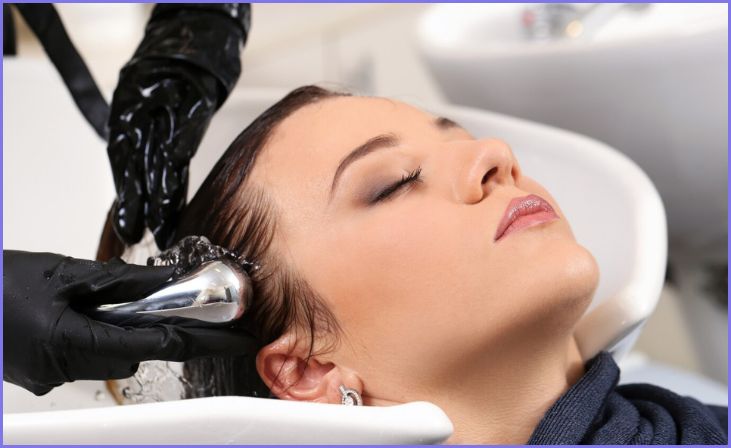
You will think, why answer this simple question? But it is necessary because most of us wash our hair in the wrong way.
We just take a load of shampoo and rub it on our hair and scalp. But that’s completely wrong and harms our hair in the long run. The correct way is different. Have a look here –
- First of all, rinse your hair thoroughly in water.
- Choose a shampoo according to your hair type only.
- Now, rather than using shampoo directly, dilute it in some water and mix it.
- Now use the dilute shampoo on only the scalp rather than the hair directly. Because too much shampoo can damage the hair shaft.
- Now rub gently to clean all the dirt and extra oil.
- Try to wash off the shampoo with cold water to avoid product buildup.
- Now after using shampoo, use conditioner to make hair softer, bouncy, and shiny.
- In the case of conditioner, use it on hair tips and avoid hair roots. Using it on roots can make hair look limp.
This is how you should wash your hair. I bet most of you do not wash your hair in the same way, but from now do it in this way to get better results.
How much hair loss is normal when washing hair female?
Hair loss during washing is a common concern for many females. It’s normal to lose some hair when washing, as hair naturally sheds during its growth cycle. On average, individuals can lose between 50 to 100 hairs per day. When you wash your hair, some of these hairs that are already in the shedding phase can come loose.
If you notice more hair loss than this during washing or if you’re concerned about hair loss, it’s essential to consider other factors like stress, diet, and overall health. Significant hair loss or sudden changes may be a sign of an underlying issue, and it’s advisable to consult a healthcare professional or dermatologist for a thorough evaluation and guidance.
How to make your hair smell good without washing it?
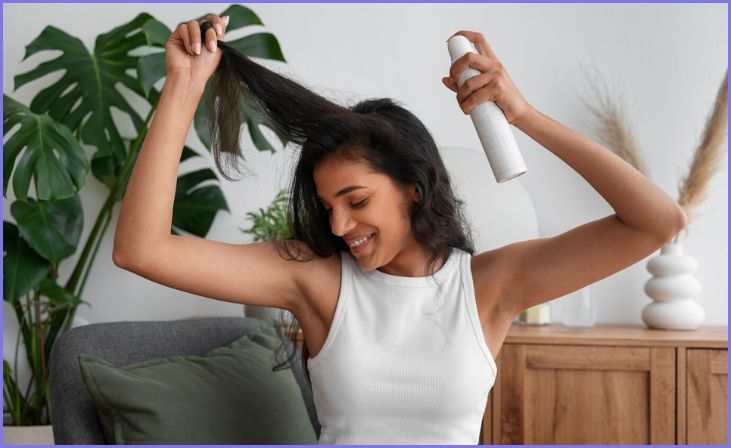
You can keep your hair smelling fresh without washing it by trying these methods:
Dry Shampoo: Dry shampoo is a powdered or spray product used to refresh and clean hair without water. It works by absorbing excess oil and sweat from the scalp, leaving hair looking and smelling fresh. To use it, apply the product to your roots, wait a few minutes, then brush or comb through to distribute it. Dry shampoo is a handy solution for extending the time between hair washes, eliminating greasiness, and providing a clean, refreshed feeling to your hair.
Hair Perfume: Hair perfume is a specialized fragrance product designed to scent your hair while providing a pleasant, lasting aroma. It’s formulated to be gentle on hair and often comes in a fine mist or spray form. To use, lightly spritz the perfume onto your hair, focusing on the lengths and ends. Hair perfume not only leaves your hair smelling delightful but also helps mask any unwanted odors, keeping your hair fresh and fragrant between washes. It’s a subtle way to add a touch of luxury to your hair care routine.
Leave-In Conditioner: Leave-in conditioner is a hair product that’s applied and left on the hair without rinsing. Unlike regular conditioner, which you wash out in the shower, leave-in conditioner is designed to provide ongoing nourishment and hydration throughout the day. It helps detangle hair, reduce frizz, and adds moisture and softness to your locks.
Essential Oils: Essential oils are concentrated, aromatic liquids extracted from various plants. They can be used to add fragrance to your hair without washing it. To use essential oils, dilute a few drops in water and lightly mist the mixture over your hair. Popular choices include lavender, rosemary, and citrus oils, which not only leave a pleasant scent but may also offer additional benefits like promoting hair health or relaxation.
Brush Your Hair: Brushing your hair is a simple yet effective way to keep it smelling fresh without washing it. Regular brushing helps distribute natural oils from your scalp to the ends of your hair. This action not only reduces oiliness at the roots but also spreads a subtle, natural fragrance throughout your hair.
Change Pillowcases: Changing your pillowcases regularly can contribute to keeping your hair smelling fresh without frequent washing. Pillowcases can absorb hair oils and odors over time, which can transfer back to your hair as you sleep. By changing your pillowcases often, you ensure that your hair comes into contact with a clean surface, reducing the risk of unwanted odors clinging to your locks.
Does Colored hair need a special hair wash treatment?
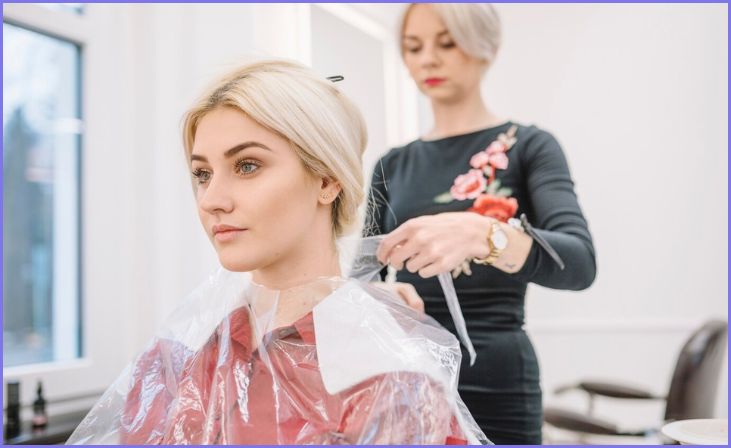
The short answer is Yes! Because colored hair does indeed benefit from special hair wash treatments and care routines tailored to its unique needs. By choosing the right products and following best practices, you can extend the life of your hair color and keep your locks looking vibrant and healthy. Remember, investing in quality hair care products and maintaining a consistent regimen will help you enjoy your beautiful, colored hair for longer periods while minimizing damage.
Ultimately, the key to preserving your colored hair’s brilliance lies in understanding its specific requirements and providing it with the care it deserves.
So if you use regular shampoo to wash them, they may further get damaged. So it is best to wash that hair with special hair products like Dove Nutritive Solutions Shampoo Color Care.
Shampoo like the above-mentioned will not damage your hair but will clean your hair and scalp soft, making your hair soft and shiny.
What are the best hair products to use during hair wash?
As we helped till now, please let us help with the best hair wash products like shampoo and conditioner you should buy. Here are our product recommendations-
Head and Shoulders Classic Clean Daily Shampoo
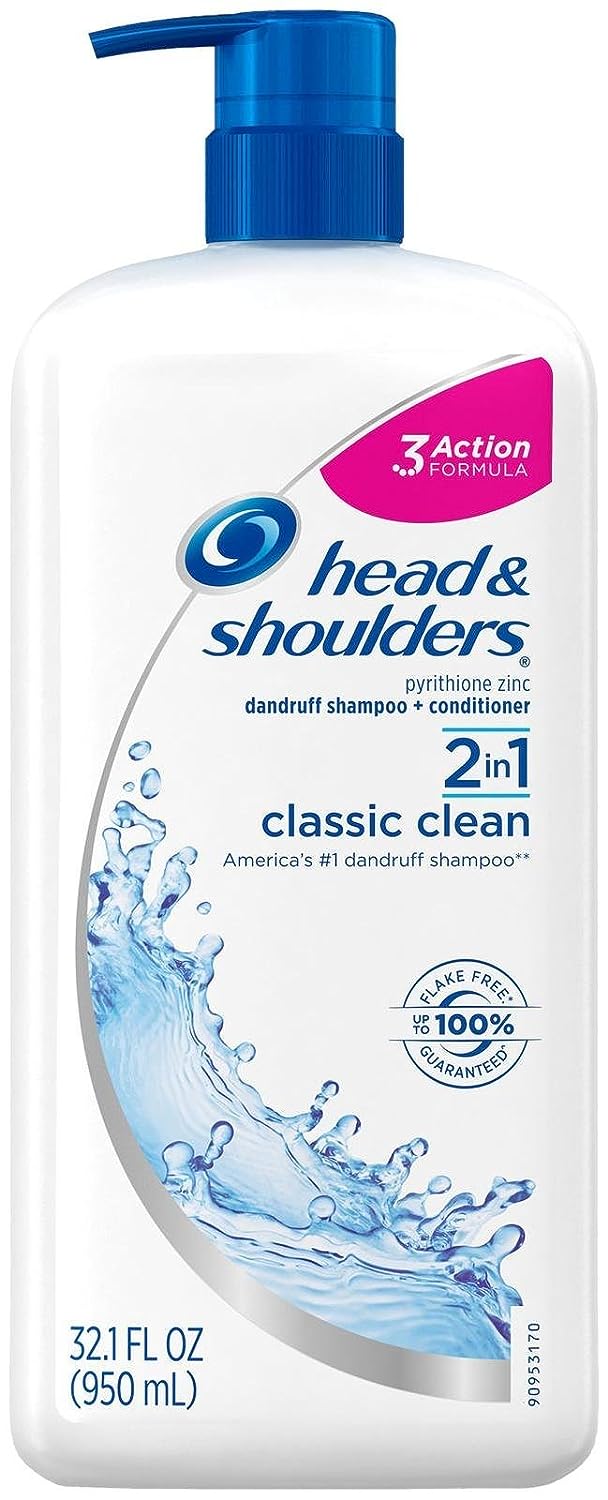
Best for daily use for dandruff hair
- Brand- Head u0026 Shoulders Store
- Scent – Fresh
- Hair Type – Dry
- Customer Ratings – 4.8 Star
SheaMoisture 100% Virgin Coconut Oil Daily Hydration Shampoo Conditioner
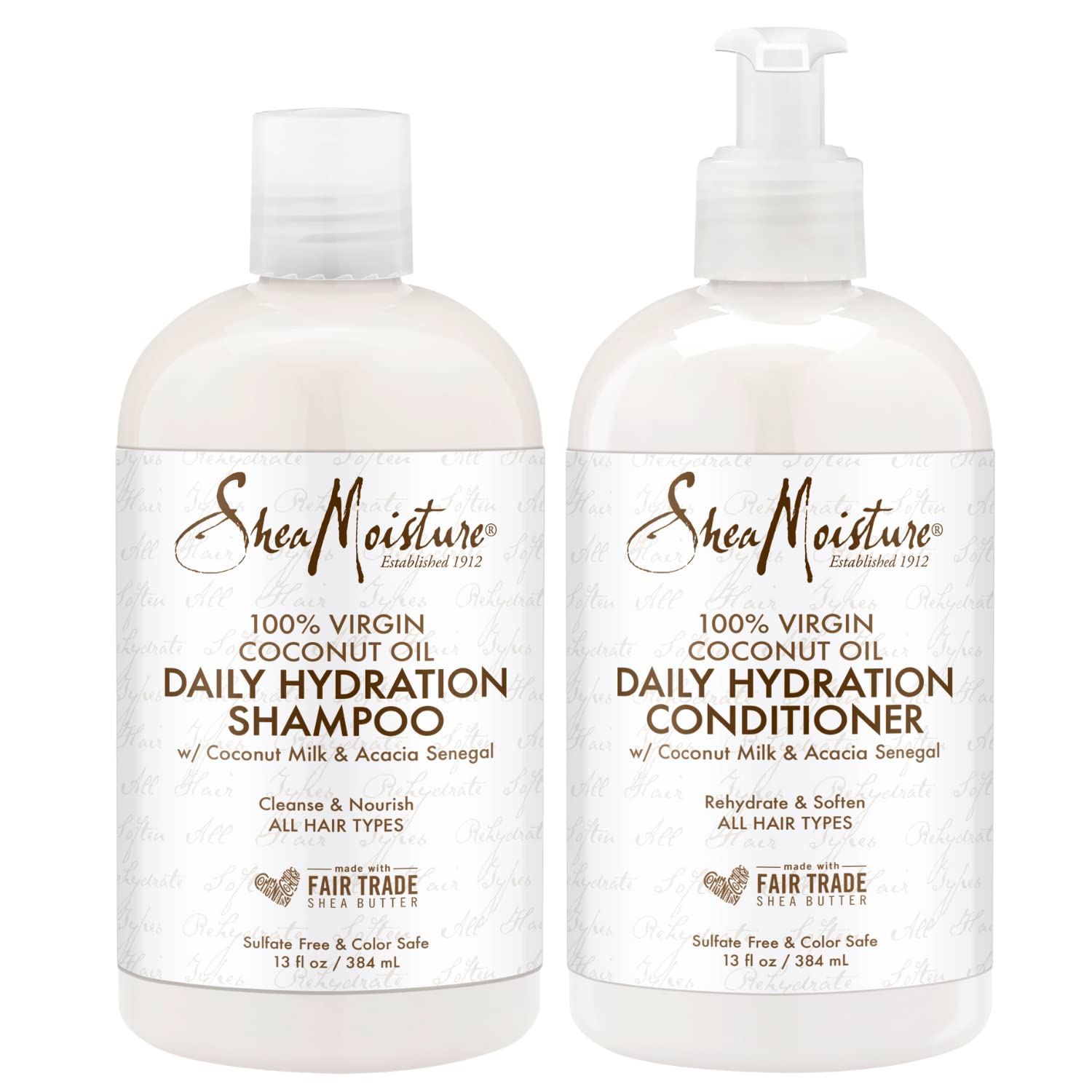
Best for daily use
- Brand- SheaMoisture Store
- Scent – Coconut
- Hair Type – All
- Customer Ratings – 4.5 Star
Garnier Fructis Pure Clean Shampoo
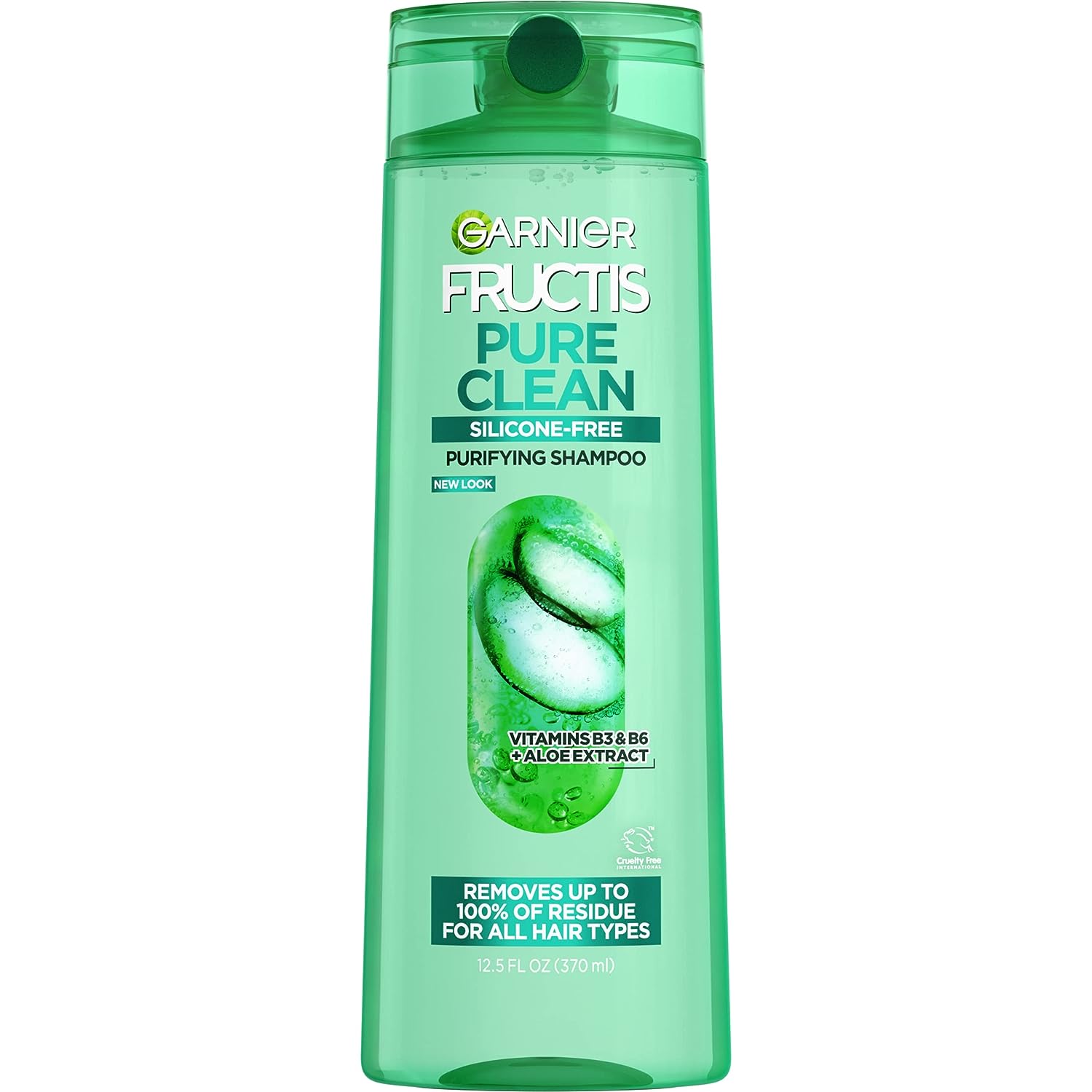
Best for Cleaning
- Brand- Garnier
- Scent – Citrus
- Hair Type – Frizzy and Normal
- Customer Ratings – 4.5 Star
Pantene Moisturizing Shampoo and Silicon-Free Conditioner
Best Combo
- Brand- Pantene
- Volume – 750+710 ml
- Hair Type – All and Chemically Treated
- Customer Ratings – 4.7 Star
Aveeno Apple Cider Vinegar Sulfate-Free Shampoo for Balance High Shine
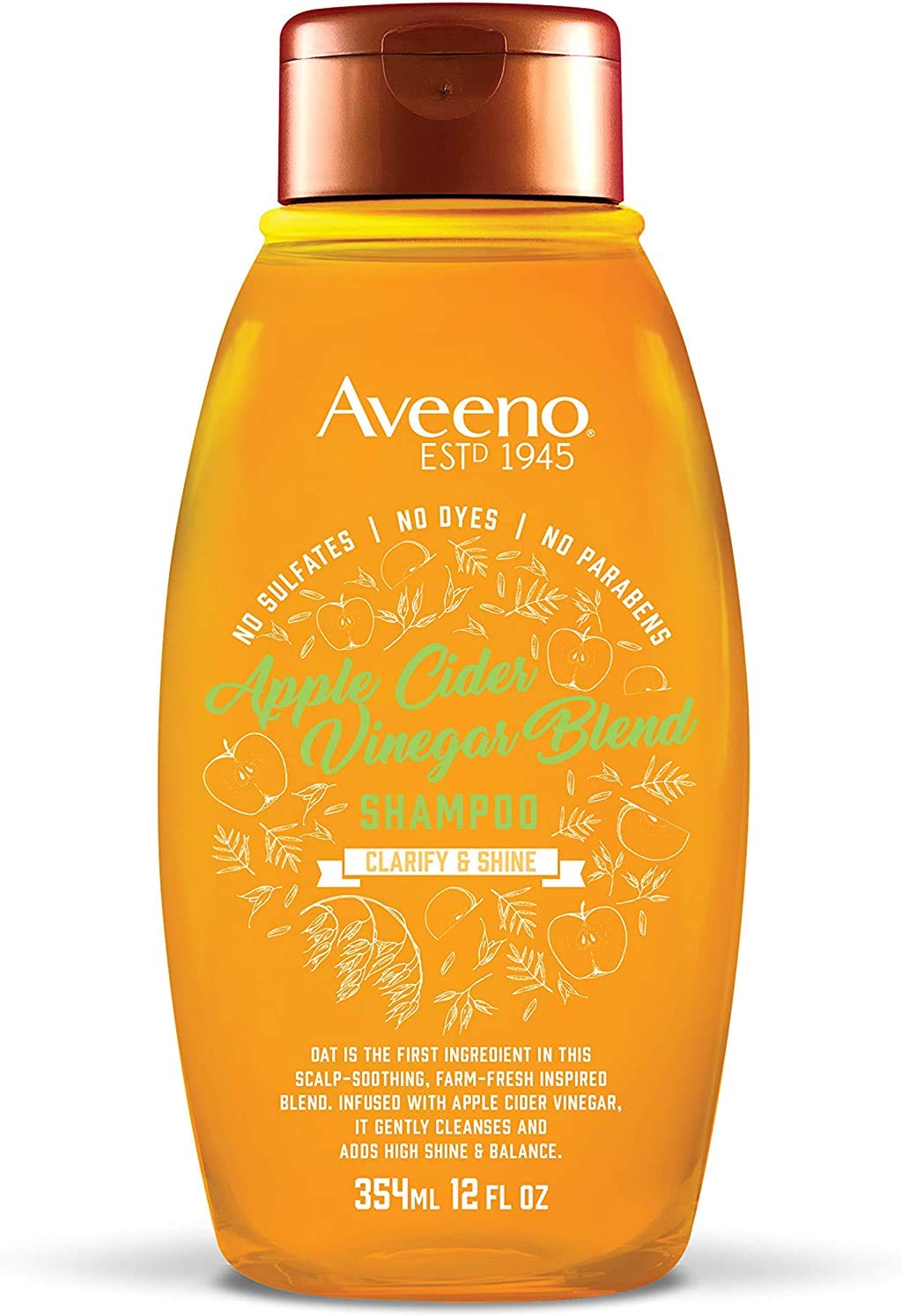
Best for Oily Hair
- Brand- Aveeno
- Scent – Apple Cider Vinegar
- Hair Type – All and Chemically Treated
- Customer Ratings – 4.7 Star
Final Words
So this was all about hair washing. We hope you find the right answer to, ”How Often Should You Wash Your Hair Without Getting Greasy??”
Remember that overwashing can strip your hair of its natural oils, potentially leading to increased oil production and dryness. On the other hand, infrequent washing might leave you with excess oil buildup and discomfort. A general guideline is to aim for washing your hair every 2 to 3 days but feel free to adjust based on your unique needs.
Additionally, consider factors like the climate you live in, your activity level, and the specific products you use. Dry shampoos can be a handy tool for extending the time between washes, absorbing excess oil, and providing a fresh feeling.
Ultimately, the key to healthy, non-greasy hair is to listen to your scalp and hair’s signals. Pay attention to how your hair feels and looks, and adjust your washing routine accordingly. With a bit of experimentation and patience, you’ll discover the perfect balance for maintaining clean, beautiful hair without excess greasiness.
Share your thoughts about this article in the comments below.
Thank you for reading!
FAQs
The frequency of hair washing depends on your hair type and personal preferences. Generally, it’s recommended to wash hair 2-3 times a week, but some people may need to wash more or less frequently.
Use lukewarm water for washing your hair. Extreme hot water can strip natural oils from the scalp, leading to dryness and damage.
Choose a shampoo based on your hair type and specific needs (e.g., moisturizing, volumizing, anti-dandruff). Sulfate-free and paraben-free shampoos are often gentler on the hair.

